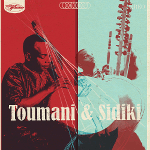マリ

"Toumani & Sidiki"
Toumani Diabaté & Sidiki Diabaté
|
CD-M-17
¥2,500 (税込) |
カートを見る
|
世界最高峰のコラ奏者トゥマニ・ジャバテが愛し子と共に紡ぐコラの芳醇な調べ
|
Mali マリ  |
"Toumani & Sidiki"Toumani Diabaté & Sidiki Diabaté
世界最高峰のコラ奏者トゥマニ・ジャバテが愛し子と共に紡ぐコラの芳醇な調べ |
| 西アフリカ マリの音楽CD WEST AFRICA MALI MUSIC CD |
 DVD/CD/BOOK |
ジャンベ ジャンベ関連商品一覧 |
 ジャンベ・民族楽器屋JUNJUN トップページ |